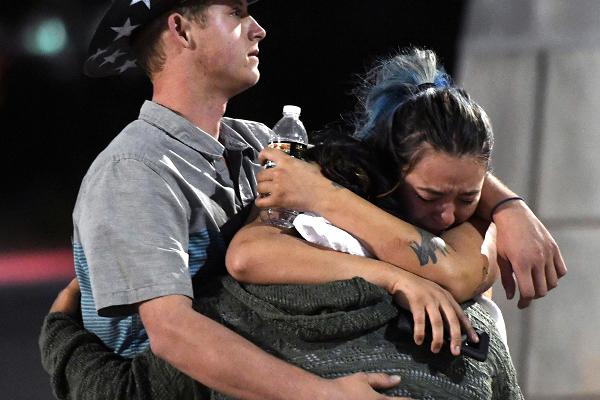
by Lu-Anne Conner
A reflection on the mass murder in Las Vegas
The appalling massacre that took place in Las Vegas is almost too much to comprehend. The death toll and the numbers of injured are staggering. As is often the case, we will never fully know what was in the mind and heart of the shooter, or why a group of innocent people became the target of his rage. In the face of such unspeakable violence, there are loud and insistent voices coming from many sides. There are some who advocate arming ourselves to the teeth. Others call for the total disarmament of civilians. There are lots of folks in between these two extremes who are overcome with grief and sorrow, who despair of ever finding a way to stop what has become a familiar pattern of violence and bloodshed. There are no easy answers here, but that does not mean that there is nothing we can do. In fact, I believe that John the Baptist might teach us something about our response to the massacre in Las Vegas.
In the third chapter of Luke’s Gospel, the word of God comes to John the Baptist in the wilderness. John begins to preach in the area around the Jordan River, calling people to repent of their sins and be baptized, so that they might become a new people fit for the coming of the Lord. John is not subtle – he entices the crowds to the river’s edge, only to insult them by calling them a brood of vipers. He speaks in ominous terms about an ax that is already lying at the root of the trees, ready to destroy those that do not bear good fruit. John’s vision is radical: he is calling for a new kind of purity based not on one’s religious heritage, but on words and deeds that reflect the will of God.
And the people get nervous. They ask John what they should do to avoid the wrath to come. They expect him to blast them with all sorts of radical life changes that few of them would be able to achieve. Instead, John’s reply is stunning in its simplicity: “Whoever has two coats must share with anyone who has none; and whoever has food must do likewise.” John also has an answer for the soldiers who ask his advice: “Do not extort money from anyone by threats or by false accusation, and be satisfied with your wages.”
Sharing clothing and food? That’s it? That’s all that God requires of us? And what about the soldiers? Why didn’t John command them to throw away their weapons and quit supporting the oppressive Roman occupation? What happened to the wild revolutionary who wanted to turn the world upside down with radical living for God’s sake?
What John asked the crowds to do was to consider the humanity of the “other.” Stop long enough to notice who is going without, he says, and simply share what you have. Stop long enough to notice the fear and terror in your neighbor and offer yourself as an instrument of God’s peace, even if you’re a soldier. Come in from the extremes and join the circle of our common humanity. Be willing to take the first step toward those with whom you disagree. Talk to one another. Listen deeply. Reason together. Persist in seeking God’s will. These are the deeds that will bear fruit in these troubled times.
The Rev. Lu-Anne Conner is Rector of the Episcopal Church of the Transfiguration in Lake St. Louis, Missouri.

